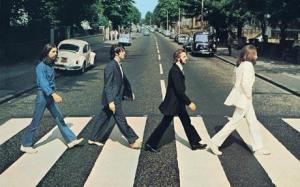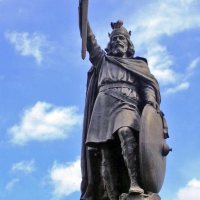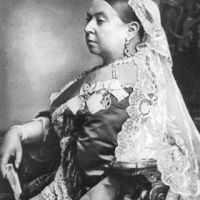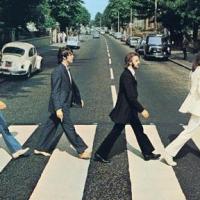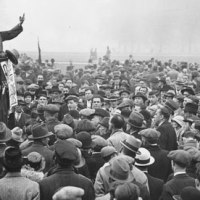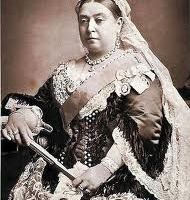J’accuse
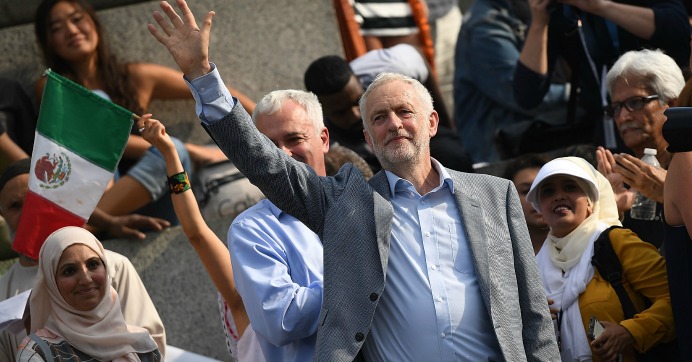 There’s a despicable and insidious undercurrent running through our country, comprised of individuals who want our country to fail. They are so blinded by hatred that they have no vision, no empathy, no respect and will use any opportunity to espouse their views. They are an invasive cancer, whether they are the Labour leader of the opposition Jeremy Corbyn (MP for Islington) and his cronies which seek high office – such as Emily Thornberry (Shadow Secretary for Foreign and Commonwealth Affairs and MP for Islington South and Finsbury) and Diane Abbot (Shadow Home Secretary and MP for Hackney North); the Mayor of London Sadiq Khan; The leader of the Liberal Democrats Vince Cable and MP for Twickenham); the Speaker of the House of Commons John Bercow (MP for Buckingham).
There’s a despicable and insidious undercurrent running through our country, comprised of individuals who want our country to fail. They are so blinded by hatred that they have no vision, no empathy, no respect and will use any opportunity to espouse their views. They are an invasive cancer, whether they are the Labour leader of the opposition Jeremy Corbyn (MP for Islington) and his cronies which seek high office – such as Emily Thornberry (Shadow Secretary for Foreign and Commonwealth Affairs and MP for Islington South and Finsbury) and Diane Abbot (Shadow Home Secretary and MP for Hackney North); the Mayor of London Sadiq Khan; The leader of the Liberal Democrats Vince Cable and MP for Twickenham); the Speaker of the House of Commons John Bercow (MP for Buckingham).
They are in positions of power and influence, and know how to get their message across, aided by a sympathetic liberal elite media who would argue that freedom of speech means they should be heard.
Their words and actions create discontent, and fuel dissent. I despise them all. Especially today, on the 75th Anniversary of D-Day when instead of commemorating this momentous historical event and honouring those who gave their lives, they have been more vocal along with their pathetic ill-educated sheepish followers to castigate Donald Trump. They target the man and dishonour the office and nation which he represents: The UNITED STATES of AMERICA.
Who are these odious people who think they speak for me and millions like me? Who are these people who think they represent the view of the majority? What right do they have to assume they have the pulse of the citizens of the United Kingdom? Yet, all these aforementioned people are MP’s for London constituencies. Perhaps this is the problem? London centrist and out of touch with everywhere else.
Londoners in 1940 rallied together in the Blitz – no greater spirit of unity existed amongst so many diverse people, yet today London has never been more divided, and their citizens are being blitzed from within with a divisive mayor and a divisive leader of the Labour Party.
I’m a “Jarra Lad” whose lived in London for over 40 years. So I care about this great city. Yet more than ever I feel it no longer represents me or my country.
Today I am so proud. I’m proud that I am English. I’m proud that my country stood fast in crisis. I’m proud that the USA stood by my country and I’m proud that together, with our allies, we liberated Europe from tyranny.
I’m proud that as a child I was surrounded by wonderful men and women who were the special war generation and influenced who I am today. And I’m proud that I have projected those values to my own children.
I’m proud that we have a Queen that can stand and remember, and thank those who gave their lives for our freedoms today. I welcome every Head of State, Prime Minister or President, from every country which landed on the beaches of Normandy or assisted in the liberation. I’m proud that this event transcended politics and that the free nations stand united without a single political reference or scoring point.
It’s called class which is something the current crop of Labour politicians and most of their idiotic followers on the streets need to practice.
Chewing the Cud over GMT and BST…..
 Very soon I will give the hour back which I received 5 months ago. In seven months time I shall reclaim it.
Very soon I will give the hour back which I received 5 months ago. In seven months time I shall reclaim it.
I don’t know who is the beneficiary of my sixty minutes, nor do I know who returns it.
I do know that every year since the day I was born I have, with great philanthropy, parted with an essential essence of my life – my time – but comforted in the knowledge that I only permitted it’s borrowing on a short term loan.
I gave it free, without interest, yet if time was indeed money, I could have become very wealthy over the years had I charged for it.
After all, if I asked my bank manager for a loan he wouldn’t give it to me for free just because I promised to return it promptly after seven months. The difference of course is that my time is priceless, and although it is unique it has no monetary value.
I can invest it, I can spend it, I can save it and I can waste it. I cannot hold it. I cannot keep it. I cannot preserve it. It is gone in a moment – and lost in a memory.
I can think of nothing more valuable, more essential than time, yet it is not oil, not gold, not silver, not platinum. My time is more precious than metals and minerals, but it is all mine – every single second of it. It’s value is incalculable.
At 02.00 on the last Sunday of March (as is always the case) I will say hello to British Summer Time, or on the last Sunday of October, return to the dark days of Greenwich Mean Time.
It’s an economic decision that I have no choice over. A few years ago the UK government considered the Daylight Savings Private Members Bill to abolish GMT and align the British Isles with CET (Central European Time), which would have meant more light at night and less light at morning. Longer summer evenings, and maybe an hour more light in winter resulting in longer darker mornings. It would have suited the more southern English, but not the northern Brits. In any event, the bill was rejected, and it’s not likely to reappear again for some time.
Any change in daylight saving policy won’t change the orbit of the earth, no more than it will stop the sun from rising and setting at inconvenient times for commerce and industry.
The cows in the fields will chew the cud regardless. The sheep will be fairly laid back and the pigs are unlikely to grunt in dissent. The cocks will continue to crow at dawn, and the chickens will lay their eggs without cracking up at the stupidity of it all.
The EU will be happy because everything will be standardised. But they tried that with the Euro and look what happened.
They can mess around with money. Surely we can’t allow them to mess around with the clocks as well?
I just don’t have the time for it.
It’s so bad it’s good….
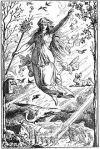 What’s “Good” about Good Friday?
What’s “Good” about Good Friday?
After all, it signifies a man abused and tortured, made to carry his own cross to be crucified, had nails hammered into his hands, a crown of thorns embedded in his head, and given vinegar to drink when he asked for water. It was clearly a very bad day.
“Good Friday”, possibly the most sacred day in the Christian calendar, appears to have been diminished by our secular and consumer led society. It’s certainly a good Friday for the new deities of consumerism – for the shopping malls and superstores, whose temples are open for worshippers. It’s a good day for atheists and agnostics, because they get a public holiday regardless of their beliefs.
Nobody really knows why the day of Christ’s crucifixion is called Good Friday. Indeed, there is no evidence that it actually happened on a Friday. It was a convenient date which married the early Christians to Pagan beliefs back in the post-Romano era.
There are two modes of thought: Good Friday was originally God’s Friday. This would make sense, because as time went by words change and develop. The Catholic Church is fairly open to this suggestion. Unlike Evangelical Bible-Thumpers who argue that it was “Good” because Christ gave his life on the Cross to save our souls. For all his suffering, it was filled with goodness they proclaim. Pre and post Romano Britain, Anglo Saxon, and medieval man would not have considered that, and certainly not the Benedictine monks who ruled with ecclesiastical hammers. Suffering and penitence was the order of the day – there was nothing to be happy about! “Christ suffered and so should you” they said. What’s good about that?
Meanwhile in Spanish Dominions, the Dominican monks ruled, and they would have dictated, absolutely, their expectations and rules, and were directly linked to the seat of the Spanish throne. The Dominicans (the religious quasi political branch of the Spanish Empire) were ruthless in their endeavours.
So what’s all this got to do with Good Friday? The simple answer is politics. Jesus didn’t choose Friday to die, nor did he choose Sunday to resurrect. Why? Because 2000 years ago the calender as we know it didn’t exist! Time revolved around the equinox. Rome and future Popes created the calendar – from the Julian to the Gregorian, and it was expedient for a Pope to embrace pagan celebrations aligned with Eostra – the pagan god of rebirth.
Emperor Constantine (the first Pope of Power) was a very clever chap. In order to unite his empire he knew he had to embrace all and alienate none. The dates of Easter has no more credence than the 25th December – the date of Christ’s birth. Christian’s do not question the date – it’s the event that matters.
Constantine needed a reference point: that which was before, and that which came after – Before Christ, and After Christ. BC and AD.
My analysis isn’t an academic study, it’s merely an observation. Yet there is little doubt that significant Christian dates were aligned with Pagan celebrations – it was expedient and convenient. Which brings us to Ostara, or Ēostre the pagan Goddess of Dawn and Rebirth. Note the word Goddess. Christianity gave us one god – God – yet here was a goddess worshipped in pre-Christian times, and she became associated with “Easter”. How is that? Easter is the association and celebration of Christ’s crucifixion and resurrection, yet, prudently Constantine combined the two. It was Constantine who brought the papacy to power, and effectively established the Catholic Church.
Does all this matter? Do dates matter? Does it matter that we have Easter eggs (another pre-Christian symbol of fertility and rebirth and don’t forget rabbits – we all know their proliferate skills). How many people actually think about that?
All that matters really is what Easter signifies – the persecution, betrayal, crucifixion and resurrection of one man who changed the world. We celebrate His birth at Christmas, lament his Death, and take joy in his Resurrection at Easter.
You may not believe it – but that doesn’t mean you can disprove it! Maybe that’s why it’s a “Good” Friday.
The Baby Boomers…….
If you were born between 1946 and 1964 then you are officially a “baby boomer”.
You’re as old as 73 and as young as 55 – assuming you’re reading this in 2019.
Baby Boomer is the term used for the generation born during the 18 years after WWII, which by all accounts changed the world and has become responsible for all the ills of society.
The first batch of boomers heralded the age of the teenager and the swinging sixties. A sixteen year old born in 1946 would have sailed through the austere 1950’s, would have abandoned Bill Hailey and the Comets, Frank Sinatra and the balladeer crooners, rejected their parents hand-me-downs, and embraced 1962 with pop music and liberation. Cliff Richard and the Shadows were the face of the young and around the corner loomed the Beatles and the Rolling Stones. Even Elvis was getting old hat.
Their parents by contrast were the generation which suffered in the depressing thirties, and then went off to war.
Indeed their parents before them would have gone through the First World War, and they certainly would have had no concept of being a teenager – they would have left school at 12 or 14 and then went to work – there was no room for anything else.
By 1966 our hero or heroine – the subject of this post and first born boomer – would be 20 years old, fashion conscious, sexually liberated, rocking to Mick Jagger or rebelling along with Bob Dylan. Later he or she would have a good job, money in the pocket, and an access to university long denied from the forebears.
Their peers would have their minds and horizons broadened and take to the streets to protest about the Vietnam war, join CND and march to “Ban the Bomb”. They were the “have it all” generation. If they didn’t get great jobs, they would still get good jobs – jobs which they could secure for 35 years and retire comfortably.
Such was their opportunity; they bought houses, raised families, and became more affluent than any generation gone before. They went through a period of relative peace (in the UK at least), did not fight any wars, and were not conscripted for national service, and even the threat of nuclear Armageddon and cold war politics fazed them not.
Our twenty-year old pot-smoking hippy (who danced at Woodstock), became either a bog-standard pillar of the establishment or found his way into the echelons of society – and if he didn’t become a captain of industry he took a seat in Parliament responsible for the very society he had fun to reject.
The mantra of Roger Daltry and the Who – Hope I die before I get old – was just a juvenile distraction.
Our first baby boomer has retired now. He has even escaped the austerity cuts and his pension is secure. His life was one of incredible social change and privilege which saw a National Health Service, a welfare state, security, peace and financial wealth.
But is he happy? He has seen the erosion of values, the erosion of community, the destruction of the nuclear family – all factors which held his parents and grandparents together.
Our 1960’s teenage angry young man now complains about the lack of values, waxes lyrically with nostalgia and regrets sentimentally about his parents generation – moans about the state of the nation, deplores the loss of standards, and castigates the young with their disrespect and irreverence for authority.
He wants to bring back hanging and flogging, he wants to incarcerate them, he wants to punish them with the full force of the law.
In 1966 he didn’t want to know about 1945 – he didn’t want to know about the hardships his parents suffered. What he wanted was a comfortable life.
Well he got it – so the best thing he can do now is stop being a hypocrite, and stop bloody moaning.
The Beatles, the Philippines and President Marcos….
Fifty three years ago the Philippines fell out of love with the Fab Four. It was also the year that John Lennon made two comments, one which was to be his eventual downfall.
In July 1966 the Beatles toured the Philippines. Little did they know that the dictator President Marcos and his wife Imelda were accustomed to (and expected) absolute attention and devotion; and they certainly didn’t take kindly to the fact that the Beatles refused an invitation to attend a breakfast reception at the Presidential Palace.
Their manager Brian Epstein politely declined the invitation on the grounds that it was the group’s policy not to accept official invitations. Marcos took this as a personal snub and consequently revealed this perceived insult to the media, who ran with it, implying that it was also a snub to the Filipino people.
Subsequently all police protection was removed from them. The group and their entourage had to reach Manila airport unguarded. Their road manager Mal Evans was assaulted, and the band encountered a hostile crowd.
Although they managed to board the plane, Evans was removed, and Epstein was forced to hand over all their Philippines earnings before they were permitted to leave the country.
It led to John Lennon remarking that should he ever return to the country, he “would fly over it with an H-Bomb”. Many biographies about the Beatles have suggested that they were all lucky to escape with their lives, such was the hostility which they encountered once Marcos stated that his people had been scorned.
Of course we can argue now that perhaps the Beatles were not familiar with international diplomacy, but they relied on their manager to manage, and the manager made a decision. Yet the times were different. Marcos was all powerful, and this unwitting act of disrespect to refuse an invitation to the palace was deemed a personal insult to the president who through hubris was so offended, that he manipulated his people to turn against the Beatles. His insult was an insult to his people. It’s a classic example of one man exercising power for his own ends. Indeed, this event is not so much about the Beatles, but about pride, power, and dictatorship. It’s about a despot who assumed that his power was omnipotent.
It would be another twenty years before Filipinos finally realised that this was power absolute and had the courage to rise up in 1986 with “People Power”.
When John Lennon said he would like to fly over the Philippines with an H Bomb he was 25 years old and did not make that remark directed at the Filipino people. But it wouldn’t be the first hot-headed thing he said, because earlier he said something else which would eventually cause him even more controversy and years later – his murder.
Three months earlier in March, he was reported in the London Evening Standard, during a fairly innocuous interview as stating that the Beatles were more popular than Jesus. It was an off-the-cuff innocent and careless remark and typical banter from a young Liverpudlian. This was picked up by right-wing religious conservatives in the USA, and exploited. It further fuelled the anger in the Catholic dominated Philippines, which even today they wrongly regard as the blue touch paper which set the firework off.
Through clever propaganda, instigated by President Ferdinand Marcos, the Filipino people, over half a century later, believe that their antagonism to the Beatles was because of Lennon’s Jesus statement. It could not be further from the truth.
The story had no merit until a US teen magazine naively ran with it on their front cover, resulting in an evangelic radio station WAQY in Birmingham Alabama announcing that it wouldn’t play anymore Beatles music and that they were going to burn their records. This led to a domino effect, and other radio stations followed suit.
The English brushed off his comments in the newspaper at the time. It wasn’t news. Not a single word of complaint came from the Church of England or the Roman Catholic Church.
In August when the situation had reached a rolling-stone momentum which threatened the existence of the group, John Lennon was forced to apologise twice – stating that he was not boasting about the fame of the Beatles, and he never intended to cause offence to people of religious faith. It happened in Chicago and proved to be the last Beatles tour.
So let’s put the record straight – here and now! The Filipino people didn’t get angry with the Beatles because of what John Lennon said. They were manipulated and encouraged by a state-run media, controlled by a demigod dictator, who was snubbed by the biggest band of the age. Marcos was insulted, and it struck at his pride. Such was his bitterness that he ensured that his countrymen would feel the same pain and humiliation.
Marcos controlled the media, the military and the government and therefore he controlled the minds of the people. It is he and his cronies that the Filipino people should be angry with – not the Beatles.
Today, the Beatles are revered in the Philippines and there isn’t one karaoke bar which is not playing a Beatles song and not one Filipino crooner who doesn’t attempt to sing one.
As Paul McCartney has acknowledged – it wasn’t the people, but the regime that caused the problems, and he’s proud in hindsight that it was the Beatles which first snubbed the Marcos family and dented their crown.
The Crimea…Half a League Onward…….
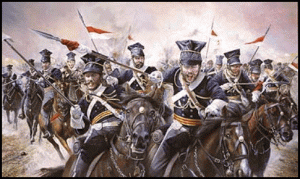
Half a league, half a league,
Half a league onward,
All in the valley of Death
Rode the six hundred.
‘Forward the Light Brigade!
Charge for the guns!’ he said:
Into the valley of Death
Rode the six hundred.
Just over a hundred years ago the world went to war, and the stage for it was set by another smaller but no more less significant conflict almost 60 years earlier. It’s a timely reminder – because it was called the Crimean War.
It was a war which altered the balance of power in Europe, and which subsequently led to the assassination in 1914 of Archduke Ferdinand – heir presumptive to the Austro-Hungarian throne. His killer was Gavrilo Princip a Serbian nationalist who wanted the South Serb provinces to break away and be combined into Greater Serbia – or a Yugoslavia – a union of South Slavic countries.
This ultimately led to other European states being dragged in, all vying for their position and alliances, and so it was that the Great War began. This brief introduction, deliberately short on studious analysis is merely to put the Crimean War into context. And we must go even further back from it’s origins to understand how and why the Crimean War began – as far back as the Napoleonic Wars 200 years ago.
2014 commemorated the 100th anniversary of the start of World War One, but last year 2015 also commemorated the 200th anniversary of the Battle of Waterloo and the end of Bonaparte’s dream of a European empire, with he as her emperor.
At the end of the Napoleonic war the great powers Britain, Russia, Prussia, Austria and France got together in Vienna to try and restore European stability by suppressing revolutionary republics and supporting sensible monarchies. Known as the Treaty of Vienna, it led to 30 years of peace in Europe. By 1845 this peace was showing signs of cracks, principally because of the weakness of the Ottoman-Turkish empire.
Then as now Turkey had one foot in Europe and the other in Asia, or more to the point one foot in European Christian orthodoxy and the other in Islamic Middle East. At this point enters the protagonist, then as now – Russia.
Tsar Nicholas was keen to take advantage of the weakness of the Ottoman Empire with a view to carve up the European part of Turkey and gain some valuable strategic areas. This effectively would give Russia control of the Dardanelles, the strait which connects the Black Sea to the Aegean, and more famously known today for the disastrous tragic WWI campaign of Gallipoli.
Due to increased Russian aggression, Turkey declared war against Russia in October 1853. A month later the Russian Black Sea fleet destroyed a Turkish squadron at Sinope, a Turkish city on the Black Sea, which galvanised British concerns because it threatened her trade links with Turkey and India.
The French, who had no particular interest in Turkey, chose to ally themselves to Britain because they were still smarting from their defeat by Russia in 1812 (later immortalised in Tolstoy’s “War and Peace” and Tchaikovsky’s 1812 Overture) and thought that this was their chance to return the bloodied nose.
An ultimatum was issued to Russia to evacuate from the area by March 1854. That month was significant because by then the Baltic ice fields would break up allowing the British to annihilate the Russian fleet should the demand be ignored, which it was. By August the combined Anglo-French fleet took control of the Baltic. Austria subsequently joined the alliance and together contributed to an army of 60,000 to defend Istanbul.
The Russian Tsar ignored the threats (shades of Putin here) and called the bluff. A British plan was formulated to land in the Crimea, and attack Sevastopol with the view of destroying the Russian fleet and the dockyard. What followed was a catalogue of indecision, chess board manoeuvring and glorified Victorian valour which resulted in the Battle of Balaclava and the Charge of the Light Brigade. This astonishing display of bravery, courage (madness some will say) into the “valley of death” as Tennyson penned it, so shocked and frightened the Russians that they never again dared to face the British in the field.
Eventually there was a victory of sorts, and the Russians accepted defeat, the demilitarisation of the Black Sea, and for a time the European settlement of the “Turkish Question”. With the 1856 Treaty of Paris, (as with all face-saving treaties of this kind) Russia went home to lick her wounds with a modicum of compensation.
That’s what it’s all about and that’s why the defeated always walk away with a prize of sorts. Political expediency, diplomacy and conciliation make the world go around, regardless of the pain and suffering to get there in the first place. It’s easy to start something, but damned difficult to end something. A lesson we never seem to learn.
Today Russia is on the aggressive ascendancy, and Turkey seeks a political route to European Union membership through clever compromise and negotiation regarding the current mass refugees crisis. History may be the past, but it is also the present and the future, and we ignore it at our peril.
See also Bardiness: Florence Nightingale
Related articles
Dodo
 The Dodo, an ungainly flightless bird, is extinct. “As dead as a dodo” is a phrase synonymous with finality. Yet in truth it also represents mankind’s ignorance, exploitation, and failure to recognise natural and delicate balances of ecology and habitat.
The Dodo, an ungainly flightless bird, is extinct. “As dead as a dodo” is a phrase synonymous with finality. Yet in truth it also represents mankind’s ignorance, exploitation, and failure to recognise natural and delicate balances of ecology and habitat.
Today we can frown upon those early seafarers who during the course of trade and exploration systematically devastated indigenous wildlife on their travels. The Dodo was just one of many creatures which provided easy meat. Just as the giant tortoises of the Galapagos Islands fell easy prey to hungry jack-tar and matelote – the rough sailors who had suffered long sea journeys with maggot ridden food, and succumbed easily to sickness.
Charles Darwin surmised, through his theory of evolution and natural selection, that species will invariably lose their original design if no predators exist to threaten them.
Hence why does a bird need wings if it doesn’t need to fly? All creatures, having evolved over millions of years, will adapt to their surroundings. If the Dodo felt threatened in its environment, it would not have lost its wings.
The Dodo, endemic to the island of Mauritius in the Indian Ocean, was a bird over three feet tall, and nested on the ground, which is indicative of it’s perceived security. It would never know that a ruthless predator would pounce one day. These predators came as passing seafarers and found easy pickings. Sailors tell tales, and the news of their experiences would soon spread.
Early explorers and colonists would not have considered the long term environmental impact of their enterprise. Nor would they have seen that introducing domesticated animals like cats and pigs to their new found land would have such a detrimental impact.
The Dodo, having never encountered a cat before, would be at a loss to defend itself. Having no wings was a significant drawback. Similarly, livestock required land, and as harmless as a pig may appear, they were much more dominant in foraging than the humble dodo which survived on fruit and lived in harmony with the tambalacoque tree.
Together with rats which were always unwelcome stowaways, and the deforestation of land to clear areas for human habitation, the Dodo’s peaceful and harmless existence was severely under threat.
Maritime exploration is laced with stories about sightings of strange creatures on land or at sea. The dodo was first sighted during the mid 17th Century in Mauritius by Dutch sailors. Back then conservation and protection would have been as remote a concept as satellite navigation.
Whilst modern man may wring his hands and lament about the extinction of a species, everything must be viewed in the historical context of the times. The dodo is dead, but not forgotten. It’s a permanent reminder – a symbol – that man is the custodian of Earth’s flora and fauna. This is the legacy of the Dodo.
Edith Piaf
“The Little Sparrow was the epitome of the classic French chanson: supercharged, even melodramatic, and emotionally extracting every last drop of sentiment from a lyric.”
 The singer gained popularity as she toured France, her petite frame concealing an energy which would drive her to the pinnacle of her profession, singing in cabarets and vaudeville theatres and, from 1936, performing on radio and recordings.
The singer gained popularity as she toured France, her petite frame concealing an energy which would drive her to the pinnacle of her profession, singing in cabarets and vaudeville theatres and, from 1936, performing on radio and recordings.
Her great fame came after World War II, with her song “Le Vie en Rose” becoming an international standard.
During World War II she worked with the French Resistance by using her popularity to have herself photographed with French prisoners that she had performed for. These photos were then used to make identity papers that would be smuggled back to the prisoners during her return engagements.
Born Edith Gassion on December 19, 1915, in Ménilmontant, a poor district of Paris, legend has it she was born under a street light on the corner of the Rue de Belleville, with two policeman in attendance.
A difficult and exploited childhood led eventually to her being found singing on a street corner in the Pigalle area in 1935 by Louis Leplée, a cabaret owner. Leplée took the young singer under his wing and renamed her “La Môme Piaf” (which in Parisian slang translates roughly as “the little sparrow”.]
The voice of Edith Piaf carries with it perhaps more national identity than that of any other recorded artist in the world. Tiny, frail, and tragic in her life, Piaf brought French identity to the rest of the world in a way that was understandable to all.
Her voice was strong, bold, and passionate, even as she grew more frail and infirm.
When she died on October 11th, 1963 the news heralded a nationwide outpouring of grief, two million people jammed the streets of Paris, stopping traffic to watch her funeral procession.
Her grave at Père-Lachaise has become a shrine for thousands of visitors every year, and her music continues to stir the heartstrings with vibrant, passionate and yet vulnerable emotions.
Edith Piaf was one of the most popular female singers of all time, with a unique voice and talent that conquered the hearts of admirers around the world.
Her life story was truly remarkable: from her birth in 1915 on a policeman’s cape, under gaslight, to her extraordinary love affairs and heart-breaking tragedies, she was a true artist that lived to sing.
Not Boxing…Box Office…..
 At 04.00 BST Sunday 3rd May, 2015 the Pacman will finally meet the Bagman in Las Vegas. A fight long overdue, which over the past six years has been continually put off because of childish and petulant behaviour (mainly from Mayweather) and unsporting gamesmanship.
At 04.00 BST Sunday 3rd May, 2015 the Pacman will finally meet the Bagman in Las Vegas. A fight long overdue, which over the past six years has been continually put off because of childish and petulant behaviour (mainly from Mayweather) and unsporting gamesmanship.
My views have been well known about this money-making debacle over the years, indeed I have made several blog posts about it. Of course this is a welterweight fight, and it is indicative of the sport that the “greatest fight of the century” does not involve a heavyweight.
Indeed, I doubt anyone reading this, or anyone not seriously following the sport, could name the current heavyweight champion of the world. There may even be two, depending on which federation claims the title. Such is the dirge of great boxers and great personalities, it is the welterweights (higher than lightweight but less than middleweight) who have captured the public’s imagination. Mayweather is 5ft 8in, and Pacquiao two inches shorter, but between them they have demonstrated that physical stature is meaningless in Vegas – its hype not height that counts.
It is the richest fight in history, and both will walk away (win or lose) with a purse to fund a third world country for a year. The venue, the promoters, the agents, the marketeers, and the cable companies have all contrived to milk it, and and all have contrived to ensure a massive pay day.
Neither boxer ever fights outside Vegas. The days of the “Thriller in Manila” are over. Today boxing means box office.
I’d like to see Manny win, not because I am biased, but I want him to win because fundamentally he is a Filipino made good – he represents the street fighter from a poor background, is humble, doesn’t flaunt his wealth, has a strong faith, and has a passionate belief that he can make a difference for his fellow countrymen be it in politics or philanthropy.
He is in essence a symbol, and an aspiration to a generation of young people who believe that success can be rewarded, and the reward can be passed on to the less fortunate. He also holds the hopes and dreams of a nation that needs him, and he in turn has not abandoned them through his fame and fortune. Contrast that with Mayweather.
Mayweather hasn’t a single moral bone in his body, and he has demonstrated it in numerous occasions. He flaunts his wealth, is a bling king, and represents unadulterated excess. So what? Why should we expect sportsmen to be role models? Why should we expect Mayweather to be anything more than he is – a successful boxer? How he spends his money, or flaunts it, is really none of our business. Surely it’s not up to us to judge him?
Yet this fight tonight is not just a fight – as financially reprehensible and exploitative as it may be – it is a contest between two very different people who represent two different cultures, two different idealisms, and two different attitudes.
It’s not a battle of the heavyweights, but it’s a battle nonetheless. Both will win financially, yet only one will win the crown. Lets hope that he who wears the crown, wears it with dignity. The only man with dignity in the ring tonight will be Manny Pacquiao – so win or lose – that cannot be taken away from him!
Good luck Manny! Floor Floyd!
